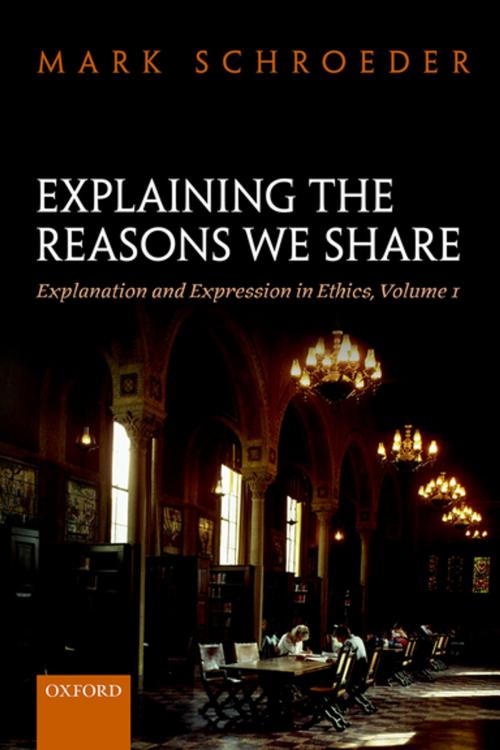Explaining the Reasons We Share
Explanation and Expression in Ethics, Volume 1
Nonfiction, Religion & Spirituality, Philosophy, Ethics & Moral Philosophy| Author: | Mark Schroeder | ISBN: | 9780191022920 |
| Publisher: | OUP Oxford | Publication: | May 22, 2014 |
| Imprint: | OUP Oxford | Language: | English |
| Author: | Mark Schroeder |
| ISBN: | 9780191022920 |
| Publisher: | OUP Oxford |
| Publication: | May 22, 2014 |
| Imprint: | OUP Oxford |
| Language: | English |
Normative ethical theories generally purport to be explanatory—to tell us not just what is good, or what conduct is right, but why. Drawing on both historical and contemporary approaches, Mark Schroeder offers a distinctive picture of how such explanations must work, and of the specific commitments that they incur. According to Schroeder, explanatory moral theories can be perfectly general only if they are reductive, offering accounts of what it is for something to be good, right, or what someone ought to do. So ambitious, highly general normative ethical theorizing is continuous with metaethical inquiry. Moreover, he argues that such explanatory theories face a special challenge in accounting for reasons or obligations that are universally shared, and develops an autonomy-based strategy for meeting this challenge, in the case of requirements of rationality. Explaining the Reasons We Share pulls together over a decade of work by one of the leading figures in contemporary metaethics. One new and ten previously published papers weave together treatments of reasons, reduction, supervenience, instrumental rationality, and legislation, to paint a sharp contrast between two plausible but competing pictures of the nature and limits of moral explanation—one from Cudworth and one indebted to Kant. A substantive new introduction provides a map to reading these essays as a unified argument, and qualifies their conclusions in light of Schroeder's current views. Along with its sister volume, Expressing Our Attitudes, this volume advances the theme that metaethical inquiry is continuous with other areas of philosophy.
Normative ethical theories generally purport to be explanatory—to tell us not just what is good, or what conduct is right, but why. Drawing on both historical and contemporary approaches, Mark Schroeder offers a distinctive picture of how such explanations must work, and of the specific commitments that they incur. According to Schroeder, explanatory moral theories can be perfectly general only if they are reductive, offering accounts of what it is for something to be good, right, or what someone ought to do. So ambitious, highly general normative ethical theorizing is continuous with metaethical inquiry. Moreover, he argues that such explanatory theories face a special challenge in accounting for reasons or obligations that are universally shared, and develops an autonomy-based strategy for meeting this challenge, in the case of requirements of rationality. Explaining the Reasons We Share pulls together over a decade of work by one of the leading figures in contemporary metaethics. One new and ten previously published papers weave together treatments of reasons, reduction, supervenience, instrumental rationality, and legislation, to paint a sharp contrast between two plausible but competing pictures of the nature and limits of moral explanation—one from Cudworth and one indebted to Kant. A substantive new introduction provides a map to reading these essays as a unified argument, and qualifies their conclusions in light of Schroeder's current views. Along with its sister volume, Expressing Our Attitudes, this volume advances the theme that metaethical inquiry is continuous with other areas of philosophy.















